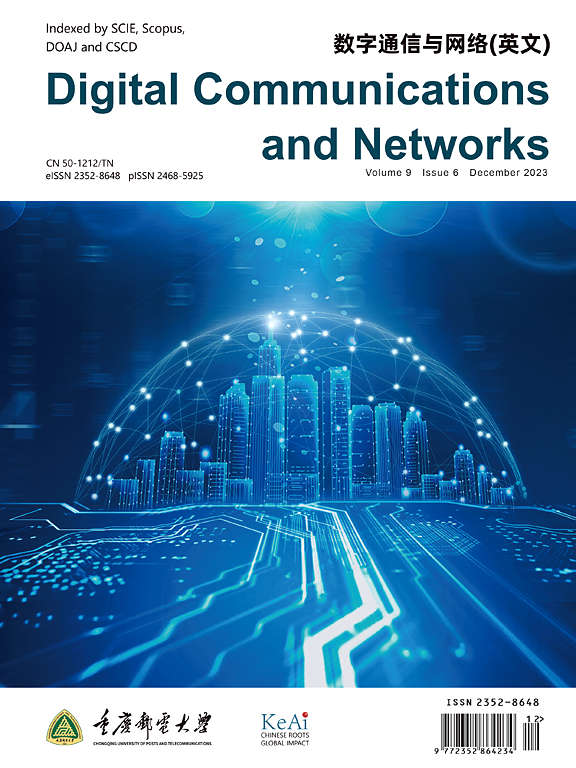A lightweight dual authentication scheme for V2V communication in 6G-based vanets
IF 7.5
2区 计算机科学
Q1 TELECOMMUNICATIONS
引用次数: 0
Abstract
The advancement of 6G wireless communication technology has facilitated the integration of Vehicular Ad-hoc Networks (VANETs). However, the messages transmitted over the public channel in the open and dynamic VANETs are vulnerable to malicious attacks. Although numerous researchers have proposed authentication schemes to enhance the security of Vehicle-to-Vehicle (V2V) communication, most existing methodologies face two significant challenges: (1) the majority of the schemes are not lightweight enough to support real-time message interaction among vehicles; (2) the sensitive information like identity and position is at risk of being compromised. To tackle these issues, we propose a lightweight dual authentication protocol for V2V communication based on Physical Unclonable Function (PUF). The proposed scheme accomplishes dual authentication between vehicles by the combination of Zero-Knowledge Proof (ZKP) and MASK function. The security analysis proves that our scheme provides both anonymous authentication and information unlinkability. Additionally, the performance analysis demonstrates that the computation overhead of our scheme is approximately reduced 23.4% compared to the state-of-the-art schemes. The practical simulation conducted in a 6G network environment demonstrates the feasibility of 6G-based VANETs and their potential for future advancements.
一个轻量级的双重认证方案,用于基于6g的V2V通信
6G无线通信技术的进步促进了车载自组织网络(vanet)的集成。然而,在开放和动态vanet中,通过公共通道传输的消息容易受到恶意攻击。尽管许多研究人员提出了验证方案来提高车对车(V2V)通信的安全性,但大多数现有方法面临两个重大挑战:(1)大多数方案不够轻量化,无法支持车辆之间的实时消息交互;(2)身份、职位等敏感信息有被泄露的风险。为了解决这些问题,我们提出了一种基于物理不可克隆功能(PUF)的轻量级V2V通信双重认证协议。该方案通过零知识证明(Zero-Knowledge Proof, ZKP)和MASK功能的结合,实现了车辆间的双重认证。安全性分析证明,该方案既提供匿名认证,又提供信息不可链接性。此外,性能分析表明,与最先进的方案相比,我们方案的计算开销大约减少了23.4%。在6G网络环境中进行的实际仿真证明了基于6G的vanet的可行性及其未来发展的潜力。
本文章由计算机程序翻译,如有差异,请以英文原文为准。
求助全文
约1分钟内获得全文
求助全文
来源期刊

Digital Communications and Networks
Computer Science-Hardware and Architecture
CiteScore
12.80
自引率
5.10%
发文量
915
审稿时长
30 weeks
期刊介绍:
Digital Communications and Networks is a prestigious journal that emphasizes on communication systems and networks. We publish only top-notch original articles and authoritative reviews, which undergo rigorous peer-review. We are proud to announce that all our articles are fully Open Access and can be accessed on ScienceDirect. Our journal is recognized and indexed by eminent databases such as the Science Citation Index Expanded (SCIE) and Scopus.
In addition to regular articles, we may also consider exceptional conference papers that have been significantly expanded. Furthermore, we periodically release special issues that focus on specific aspects of the field.
In conclusion, Digital Communications and Networks is a leading journal that guarantees exceptional quality and accessibility for researchers and scholars in the field of communication systems and networks.
 求助内容:
求助内容: 应助结果提醒方式:
应助结果提醒方式:


